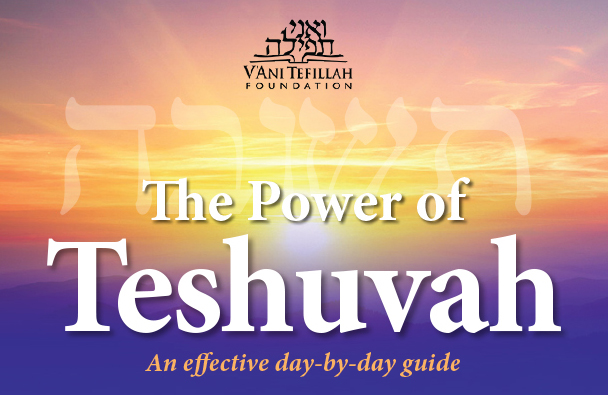The Power of Teshuvah – Day 39

Day 39
Make It Work
Several months after the Chofetz Chaim passed away, Rabbi Elchonon Wasserman spoke to his students. He asked, ‘Where did his strength lie?’ Rabbi Wasserman related the following story:
When the Chofetz Chaim was about 4 years old, he went with his friends to the marketplace. They snatched apples that had scattered from the basket of a Jewish woman vendor. Sometime later, he was studying Chumash and learned of the prohibition against stealing and the obligation to make restitution. He begged his parents for a kopeck. With that money he went to the woman, purchased several apples, and then tossed them back in the basket and ran away.
Rabbi Wasserman explained, “As soon as the Chofetz Chaim’s mind began to develop, he practiced what he learned. This was his greatness: whatever he learned was translated into practice.”
Learning in order to “do” is the key to making enduring kabbalos. First, a person must internalize the need for teshuvah; he must translate his intellectual understanding into a truth in his heart. As Rav Dessler writes, “That which is acquired as truth in one’s heart has influence on his actions without any stoppage or change.”
Despite the human tendency toward self-deception, the real truth is never completely hidden. Somewhere deep within a person, he knows the truth.
Once a person’s heart is set upon change, a second effective step is to put the kabbalah into writing. No one is too wise or too sophisticated to benefit from this step. Rabbi Chaim Ozer Grodzensky wrote on Erev Yom Kippur 5694 (1933) that he had committed himself to “not become angry.” A handwritten kabbalah also has the power, when continually reviewed, to carry a person back to the moment his heart was filled with the desire to change, thereby re-inspiring him.
In the final analysis, the staying power and influence of a kabbalah depends on the manner in which we internalize the teachings of the Torah. The Chofetz Chaim’s teshuvah arose from his wholehearted acceptance of what the Torah taught him. A person who understands that Torah is teaching him how to live, finds that his resolutions to improve come from deep within his heart. Rather than having to struggle to maintain his commitment, he feels happy and at peace when he does what God wants him to do.
Referring to teshuvah, the Torah tells us,
“For the commandment that I command you today is not hidden from you and it is not distant … Rather, the matter is very near to you — in your mouth and in your heart — to perform it.”
“And it is not distant”: Learning Torah for knowledge alone, which produces only an intellectual understanding, leaves a person distant from a real connection with Hashem. Yet teshuvah is not meant to be distant.
“Rather, the matter is very near to you”: How is it very near to you?
“In your mouth” — by studying Torah;
“And in your heart, to perform it”: Torah learning that enters the heart and translates into performance of mitzvos has the power to re-shape a person’s life.
Points to Ponder:
-
-
- A kabbalah has intrinsic value, apart from the mitzvah we undertake through it.
- Our willingness to do Hashem’s will even without knowing what it will entail is “the strength of angels.”
- This is the strength that enables us to keep our kabbalos over the long term.
- For a kabbalah to last, it must be felt as the truth in our hearts.
- Writing it down reinforces a kabbalah and reminds us of our original inspiration.
- Learning Torah in order to do the mitzvos, rather than for knowledge alone, leads to lasting teshuvah.
-

